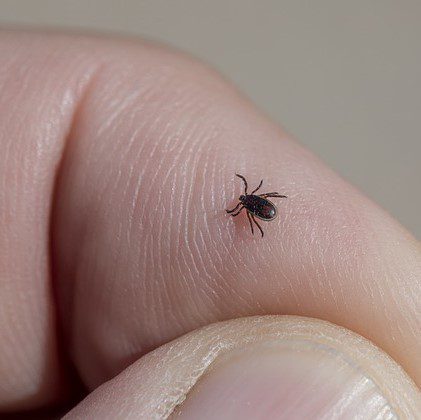The Powassan virus is extremely rare, however there have been cases of it in the United States. The disease is carried by ticks, but a recent article has pointed out that not all ticks carry the virus and it’s important to know which ones do.
Powassan virus is a rare, tick-borne virus. While still considered to be very rare, cases have been growing recently in the United States. Late spring all the way until mid-fall (tick season) is the worst time of year for this virus, and it is most common in the Great Lakes region and the northeast.
Symptoms:
Not everybody with this virus develops symptoms, so some people may never know they have it. For those who do experience the virus’ effects, they may appear anywhere from one week to one month following a tick bite. At first, symptoms include headache, weakness, fever, and vomiting. As time passes, one may develop a severe case. This brings symptoms like meningitis, encephalitis, confusion, seizures, coordination loss, and trouble speaking.
One of every ten people with a severe case passes away, and half of those who survive handle long-term symptoms, such as memory issues, loss of muscle and mass, and headaches.
Causes:
Infected ticks (most commonly the squirrel, deer, or groundhog tick) spread the Powassan virus after feeding on infected rodents. However, humans are dead end hosts, meaning that a tick will not pick up the virus from an infected human. The only way a human can spread it to another human is via blood transfusion.
Treatments:
There is no specific medication for Powassan virus, nor is there a way to prevent it aside from avoiding tick bites. Hospitalization is often necessary for severe cases. Use insect repellent, wear clothes that cover your skin, and make sure to check yourself, your gear, and your pets for any ticks that might have followed you home.
Contracting the Virus
The Powassan virus, which was discovered back in 1958, is a tick-borne sickness. This means that when a person is bit by a tick, they can contract the disease. It is extremely uncommon, and like other tick-borne illnesses, for a person to get infected, the tick needs to be connected to a human for a predetermined amount of time before the disease is transmitted.
Ticks That Carry Powassan Virus
Not all ticks carry Powassan virus, although they may be carriers of other tick-borne diseases. One tick that does carry the virus is the black-legged tick, also known as the deer tick. The strain of Powassan virus it carries is referred to as lineage 2 or deer tick virus. Deer ticks can also transmit Lyme disease, anaplasmosis, and babesiosis.
Deer ticks thrive in habitats that have an abundance of brush and are heavily wooded. They live on the ground and will climb onto a person or animal as they pass by. They cannot fly, jump, or fall from trees. In many cases, people will not know they have been bit since the tick is so small, and they will not feel the bite. In fact, deer ticks are only about the size of a sesame seed.






